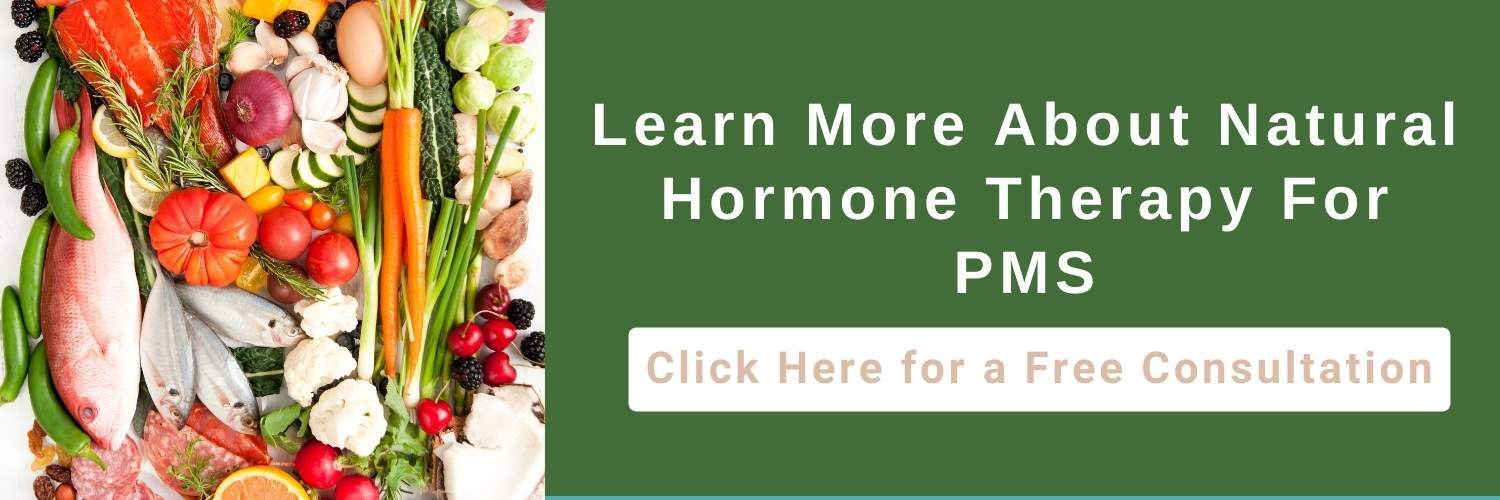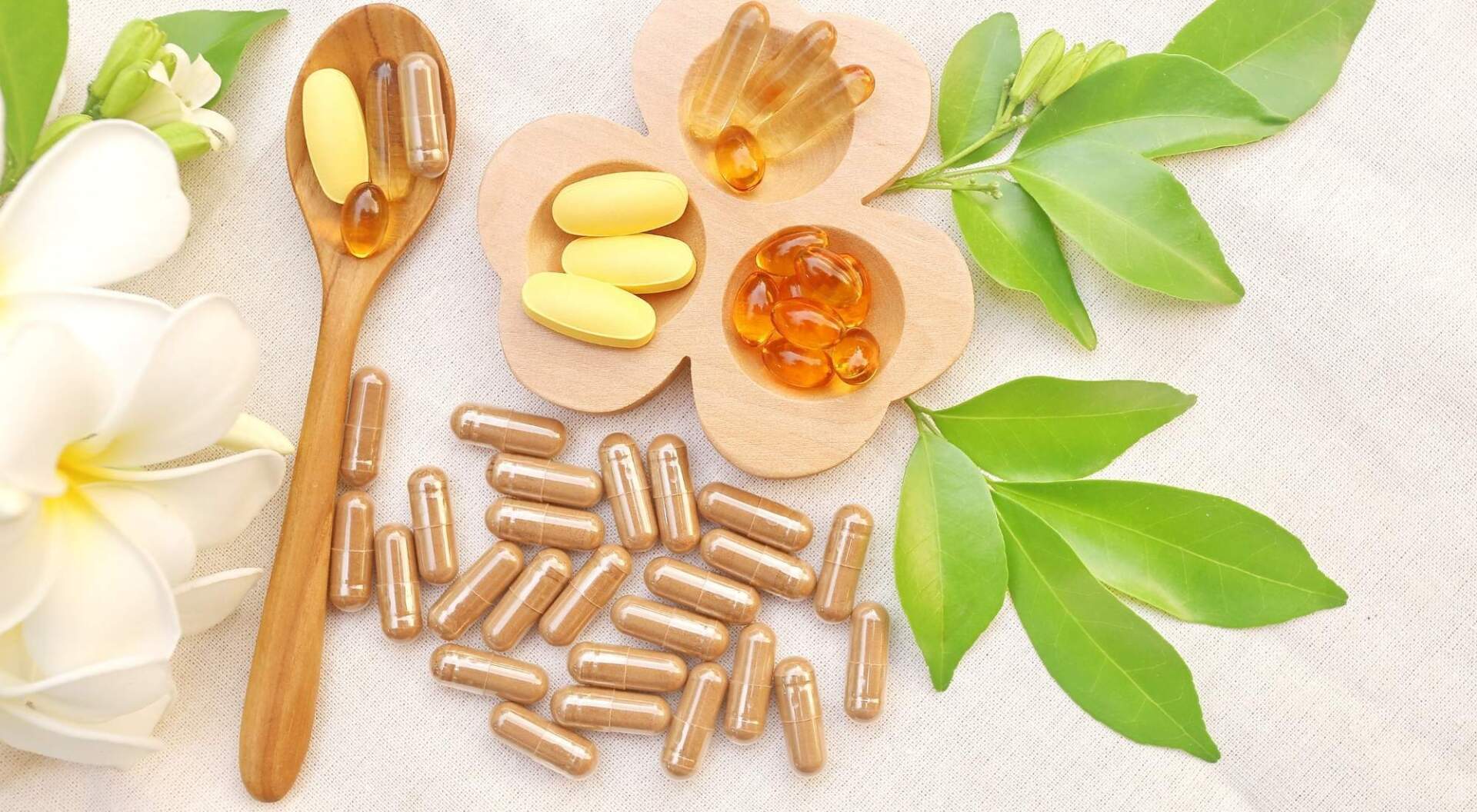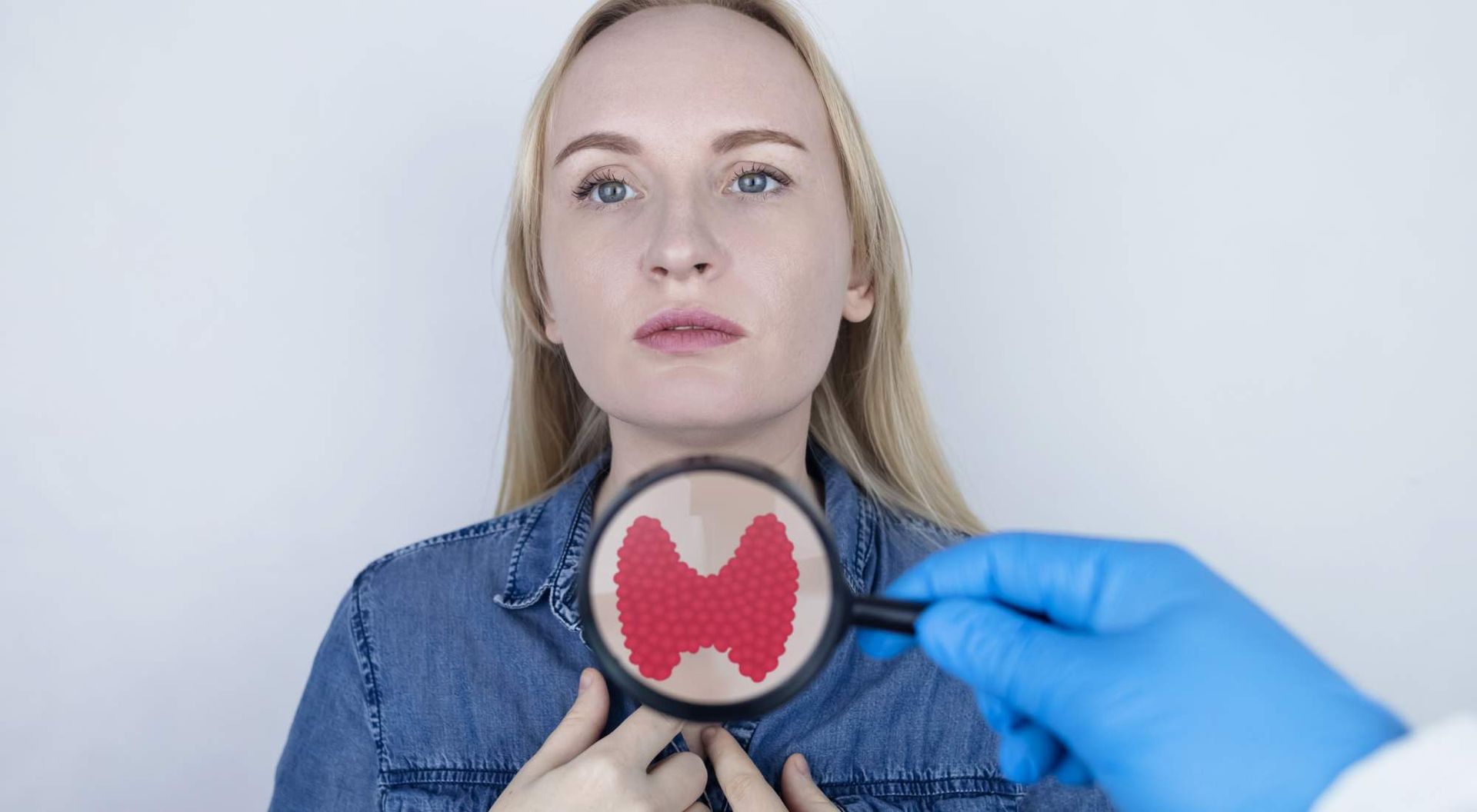Natural Hormone Therapy for PMS: What Is it and What Other Natural Remedies Are There?
"The content below is not intended to be a substitute for professional medical advice, diagnosis, or treatment. Always seek the advice of your physician or other qualified health provider with any questions you may have regarding a medical condition."
Every woman has experienced PMS at some point. The cramps. The mood swings. The fatigue.
And for some, it happens every single month. Exhausting.
There must be a way to feel better without practically overdosing on caffeine and painkillers just to get by, right?
Luckily, there is. And in this post, we share the secrets of natural hormone therapy for PMS so you don’t have to suffer anymore.
Table of Contents
What Causes PMS?
While the cause of PMS is still unknown, this frustrating condition affects more than 90% of premenstrual and menstruating women.
Some researchers believe it may be linked to serotonin and sex hormone levels at the start of the menstrual cycle. Serotonin is a chemical in your brain and gut that affects your thoughts, emotions, and moods.
Symptoms can start as early as 11 days before menstruation and typically disappear when menstruation starts.
Bioidentical Hormones — A Natural Hormone Therapy for PMS?
You may have heard of, or even been prescribed, bioidentical hormone replacement therapy (BHRT) for your PMS symptoms.
What exactly are bioidentical hormones, and are they considered natural?
Bioidentical hormones are man-made pellets that are intended to be bioidentical to your natural hormones. But according to the FDA, BHRT is not considered natural.
Some FDA-approved pharmaceuticals are made from natural sources, such as the urine of pregnant horses. But synthetic hormones are used as well.
Are Bioidentical Hormones Safe?
The jury is still out as to whether bioidentical hormones are safe. The FDA and several medical specialty groups deem the therapy no safer or effective than traditional hormone replacement therapy.
However, BHRT has gained traction — mainly due to celebrity endorsements.
Manufacturers of BHRT claim that the pellets are not only more effective but also safer than traditional HRT due to what is referred to as the “first-pass effect.” This meanseaning the hormones are absorbed directly into the tissue rather than being altered by the liver.
Before jumping into any treatment for PMS, it’s important to determine the root cause of your symptoms. Every woman is different, and our bodies react to hormonal changes based on what we are lacking.
Dr. Donna Sergi of HealthierU in Brooklyn, NY, is a licensed Nutrition Response Testing practitioner who is dedicated to helping her patients determine their unique physiological needs.
Through
Nutrition Response Testing, Dr. Sergi can help uncover the cause of your PMS symptoms and develop a plan to restore your body to a functional and balanced state.
Overcome PMS Symptoms With These 4 Additional PMS Natural Treatments
Natural hormone therapy for PMS doesn’t need to be so complicated, nor should it require a prescription for most women. Below, we outline some of our favorite natural treatments for PMS and explain why they work.
#1: Diet Changes
Eating healthy is always good. But for women, small diet changes during PMS can be super beneficial.
For example:
- Salty foods may contribute to additional bloating and discomfort.
- Sugary foods can cause blood sugar fluctuations that can worsen mood swings.
- Fatty foods promote higher prostaglandin levels and increase the severity of cramps.
Eating a diet rich in vitamins and minerals and drinking plenty of water is essential to:
- Maintaining energy
- Reducing mood swings; and
- Relieving the physical discomforts of PMS
And don’t forget to drink plenty of water! Aim for eight glasses of water every day, not just during PMS.
#2: Supplements — Are You Getting Enough of the Right Vitamins?
Vitamins are essential to our health. And during PMS, even more so.
While eating fresh, whole foods is the best way to ensure you’re getting the right vitamins and minerals, it’s not always possible. Dietary supplements can help.
Calcium
PMS has been linked to low calcium levels. Your calcium levels also change during PMS and may be triggering some of the symptoms you’re experiencing.
Studies suggest that taking 500-1,000 mg of calcium daily (and for longer durations) can effectively reduce PMS symptoms such as:
- Mood disorders
- Fatigue
- Concentration problems
- Edema; and
- Pain
Calcium supplements are generally cost-effective. However, you can increase your daily calcium intake by eating these foods:
- Cheese, milk, and other dairies
- Leafy, green vegetables (such as okra and kale)
- Anything made with fortified flour
- Fish (sardines and pilchards)
- Soya drinks with added calcium
Magnesium
Magnesium has been shown to alleviate some symptoms of PMS in some women.
If you suffer from …
- Tender breasts,
- Bloating; or
- Fluid retention
… you may find relief by taking 360 mg of magnesium per day combined with Vitamin B6.
Be sure to speak to a healthcare professional, as magnesium supplements can cause diarrhea, upset stomach, and blood pressure changes in some people.
If you’d rather up your magnesium intake through foods, try adding these to your diet:
- Pumpkin and chia seeds
- Almonds, cashews, and peanuts
- Soymilk
- Oatmeal
- Boiled spinach
- Whole wheat bread
- Milk
- Brown rice
- Avocado
B Vitamins
Adding a quality, water-soluble B-vitamin complex to your daily routine can offer some relief from PMS symptoms, such as:
- Mood swings
- Cramps
- Fatigue; and
- Concentration problems
A B-vitamin complex should consist of:
- Thiamin (B1)
- Riboflavin (B2)
- Pyridoxine (B6)
- Folate (B9); and
- Cobalamin (B12)
Foods rich in B-vitamins consist of:
- Milk and cheese
- Eggs
- Chicken, red meat, liver, and kidney
- Fish and shellfish
- Dark green vegetables
- Beets, potatoes, and avocados
- Cereals and whole grains
- Legumes
- Nuts and seeds
- Fruits
- Yeast and wheat germ
- Soy milk or tempeh
#3: Herbal Remedies
Many people turn to herbal remedies when feeling sick, and PMS is no different. Some herbal remedies have been shown to reduce and alleviate symptoms associated with PMS.
Always check with your healthcare provider before taking any herbal remedies for PMS, as it may interact with prescription medications.
Agnus Castus
Agnus Castus, derived from the Chaste Tree, has been traditionally used to relieve symptoms of PMS, including:
- Irritability
- Mood swings
- Anger
- Headache; and
- Tender breasts
In one
study, 178 women were chosen to take either agnus castus or a placebo for three consecutive menstrual cycles. The patients who took the agnus castus experienced a significant improvement in these symptoms.
Evening Primrose Oil
Evening primrose oil is derived from the seed of a flower that is native to North America and has been used to treat digestive issues, sore throat, bruises, and more.
It’s also been shown to be highly effective in treating some symptoms of PMS in some women, including:
- Depression
- Irritability; and
- Bloating
Some women have also reported relief from cramping and heavy bleeding after taking evening primrose oil.
Ginkgo Biloba
Best known as the memory supplement, Ginkgo Biloba may also help relieve symptoms associated with PMS.
One study showed that taking 40 mg tablets, three times per day, reduced the severity of symptoms (both psychological and physical) in the study participants.
Researchers believe that compounds in Ginkgo Biloba may:
- Improve blood circulation
- Trigger changes in the brain associated with mood
- Reduce inflammation
- Counter breast pain and bloating; and
- Reduce anxiety and stress
St. John’s Wort
Mostly known as a natural antidepressant, St. John’s Wort may also be used in the treatment of PMS symptoms.
Because it affects the neurotransmitters norepinephrine and serotonin, St. John’s Wort can be especially effective in reducing the mood swings, depression, and irritability associated with PMS.
It’s also been shown to
reduce the physical pain that can accompany PMS.
#4: Exercise and Rest
If you don’t feel like exercising when you’re PMSing, you are not alone. However, research suggests that regular aerobic exercise can help with PMS symptoms such as fatigue and depression.
When you exercise, your brain releases important chemicals called endorphins. These endorphins may also help relieve the pain associated with PMS.
Here are some easy and fun aerobic activities that you can add to your daily life:
- Cycling
- Swimming
- Brisk walking; and
- Running
Yoga is another activity that is perfect for PMS. Not only does yoga help reduce stress, but it also improves circulation. Some studies have shown that yoga can also reduce menstrual cramps, bloating, and pain.
Some research suggests that during your menstrual cycle, your muscles move differently, increasing your risk of injury. So don’t overdo it at first.
If you’re new to exercise, we suggest adding some balancing and strengthening exercises to your routine to lower your chances of getting injured.
And lastly, don’t be afraid to rest. It’s okay to get off your feet and lie down with a heating pad when needed.
Rest and
meditation have been shown to reduce the symptoms of PMS in some women, so why not find a dark, quiet room, put on some gentle music, and close your eyes for 20 minutes.
Let HeathierU Help You Overcome Symptoms of PMS Naturally Through Nutrition Response Testing
Are you still looking for the best remedy for PMS?
At HealthierU in Brooklyn, NY, Dr. Donna Sergi, Nutrition Response Practitioner and Holistic Chiropractor, uses a technique called Nutrition Response Testing. The idea behind Nutrition Response Testing is that your body is capable of repairing most damage.
Through Nutrition Response Testing, Dr. Sergi can analyze the underlying causes of your PMS and develop a personalized plan to help manage your symptoms and find relief — permanently.
Nutrition Response Testing can mean the difference between taking medication to alleviate your PMS symptoms versus identifying the cause and preventing it from coming back.
Nutrition Response Testing is the opposite of traditional medicine because it doesn’t mask your symptoms with medications.
Learn more about how a holistic approach and natural hormone therapy for PMS can help you by scheduling a free consultation today.






